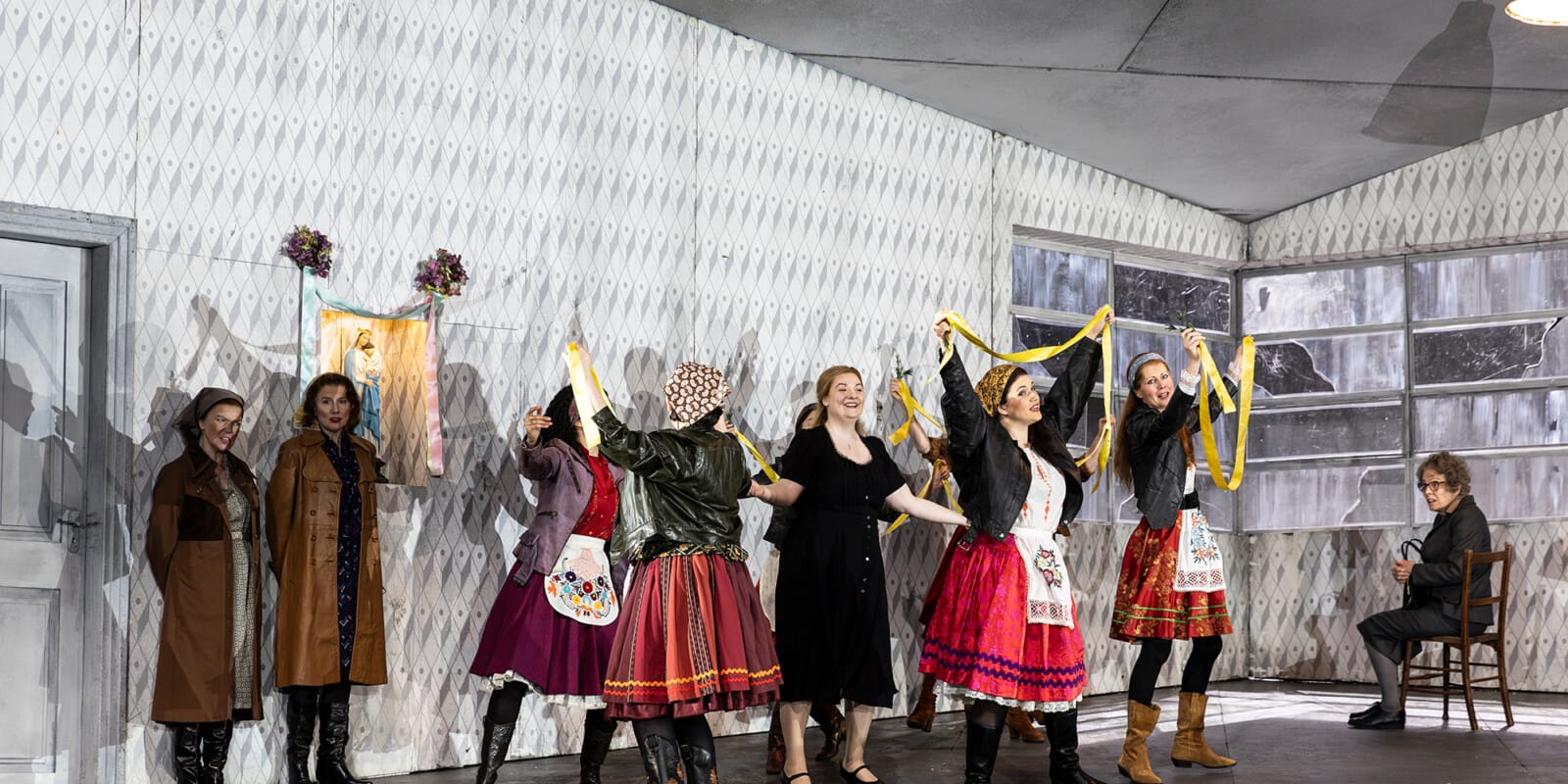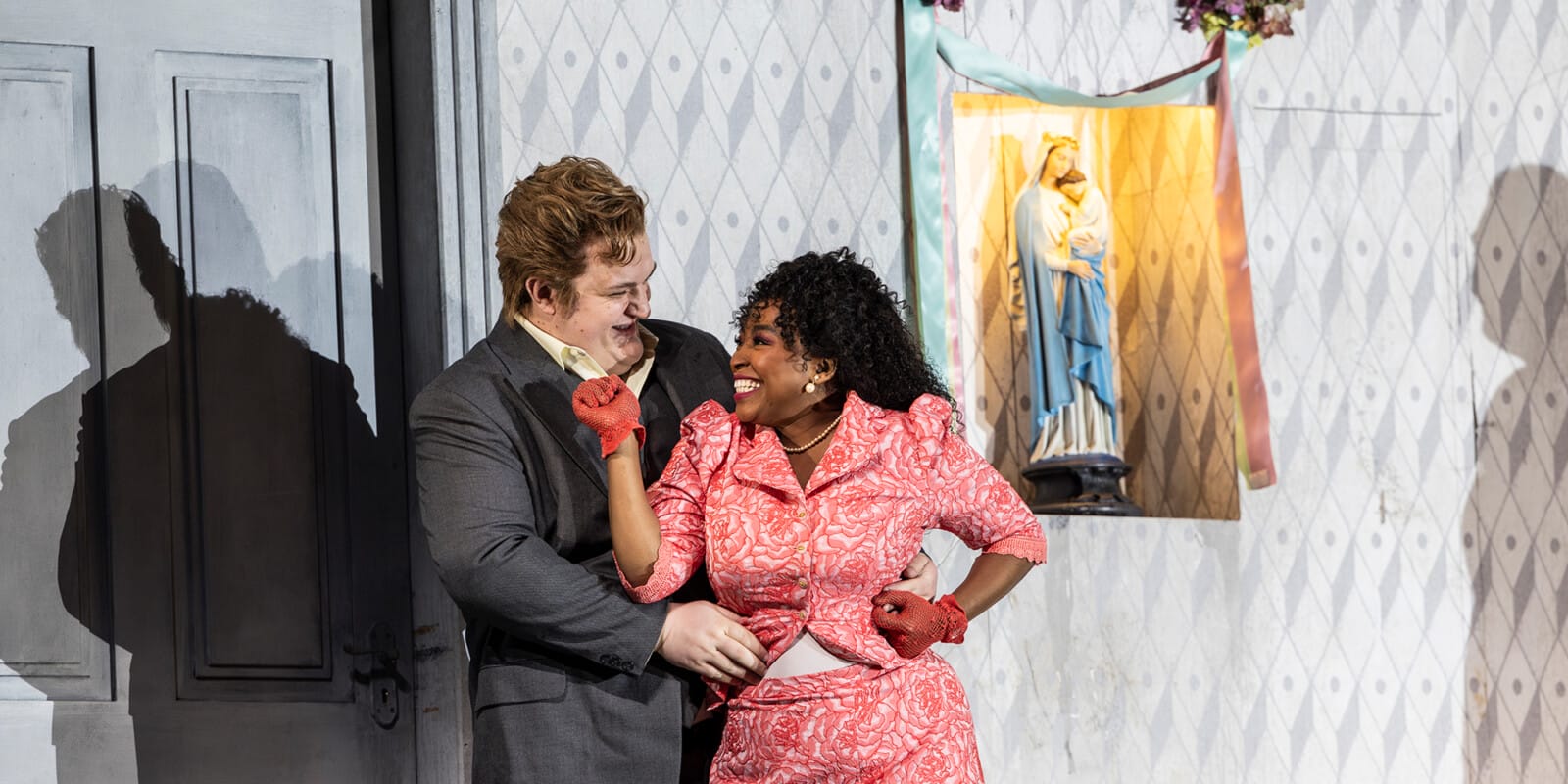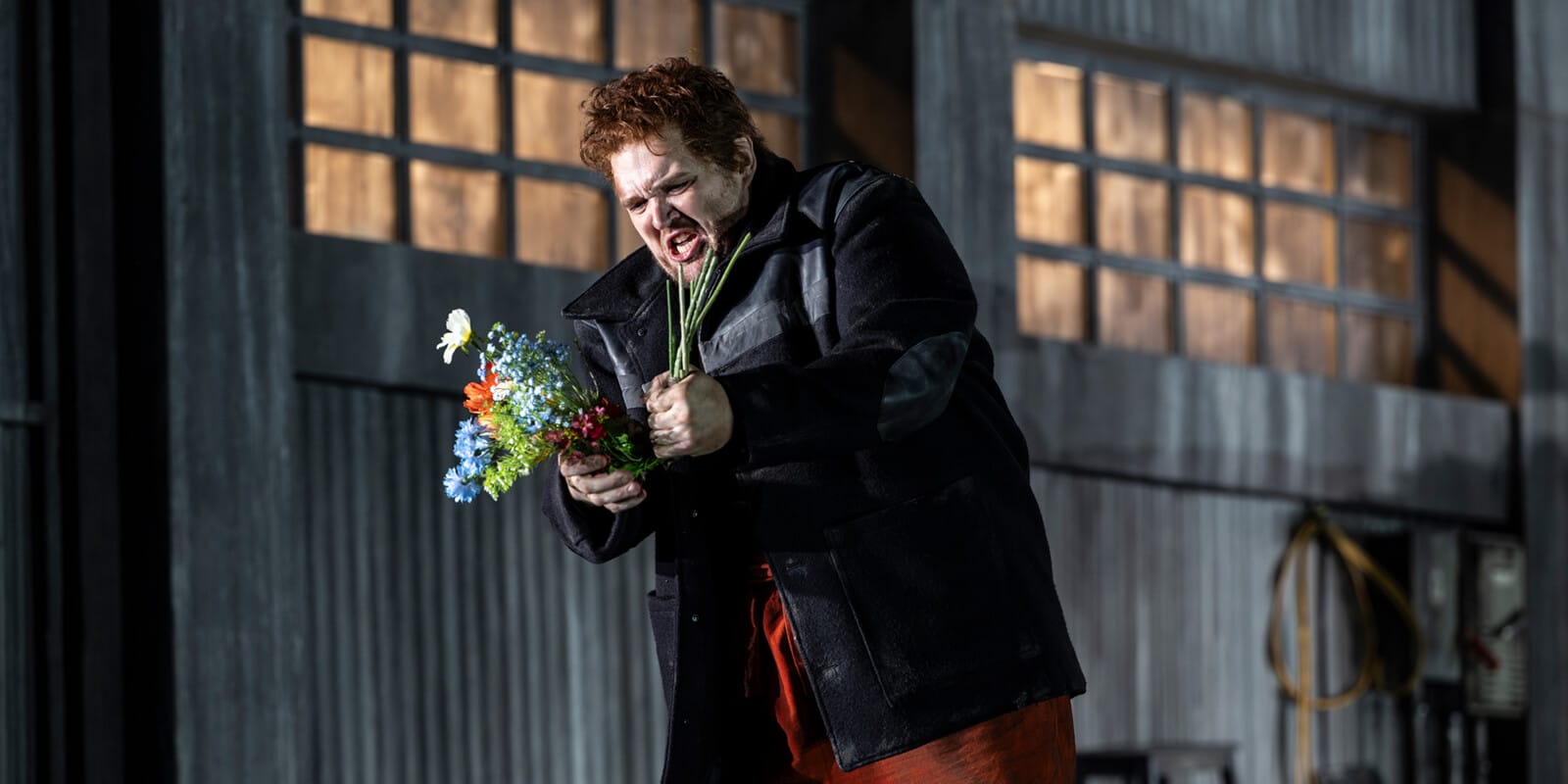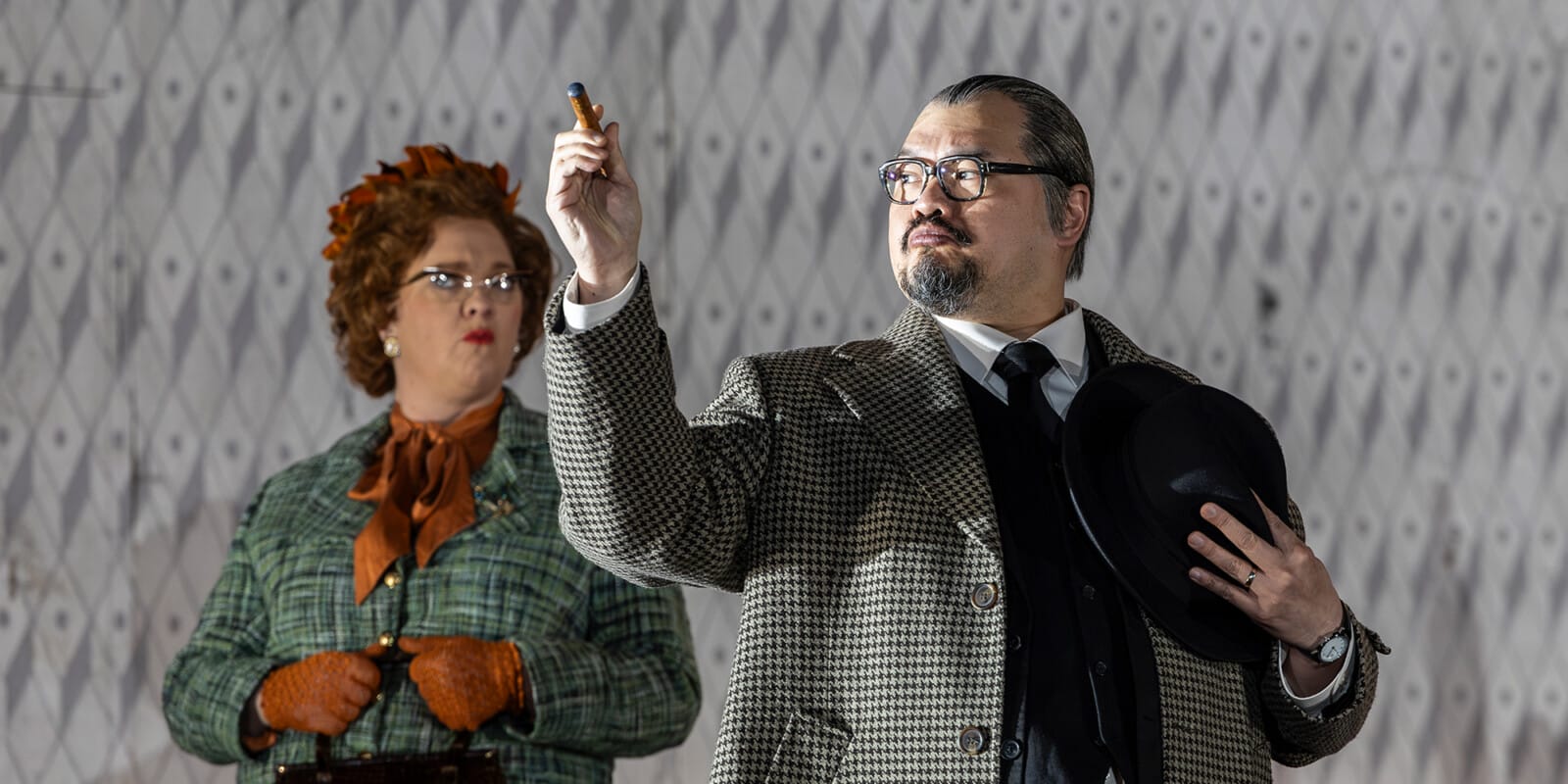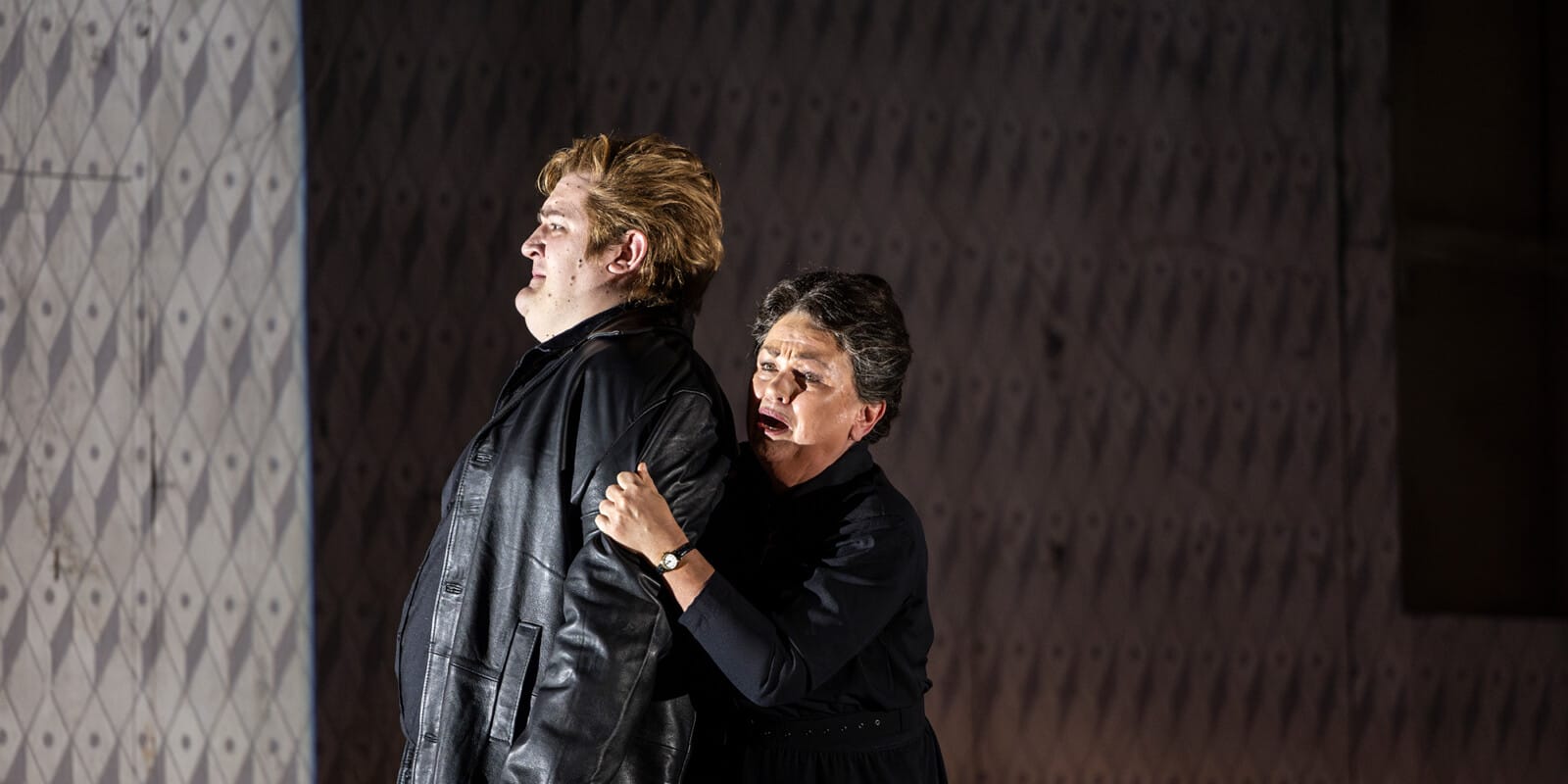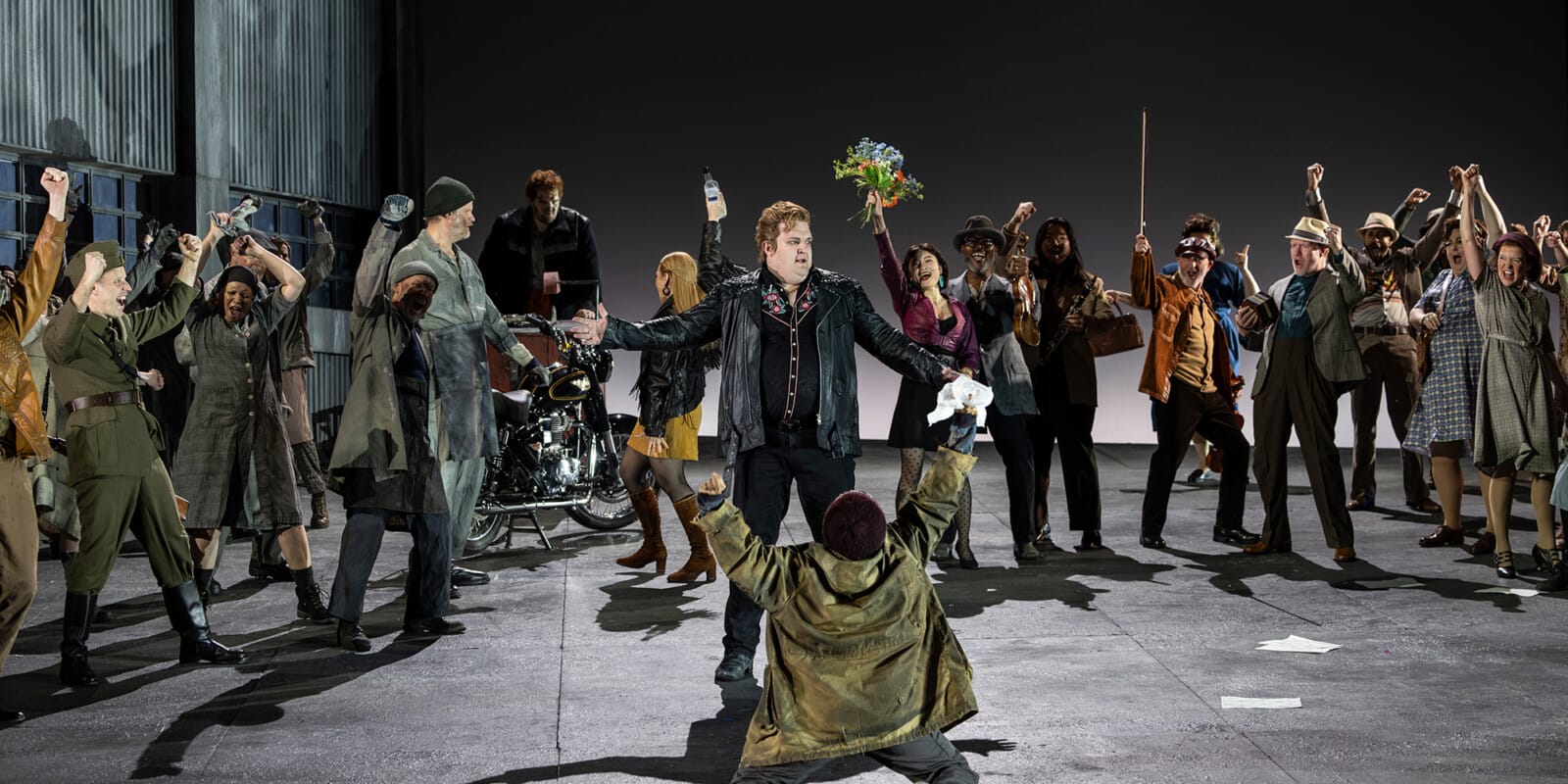Introduction to Jenůfa
Jenůfa is a heart-breaking story of honour, love and sacrifice in a small community. The Guardian calls it a “fast-moving, emotionally rich, musically extraordinary [opera with a] plot straight out of soap opera.”
It’s Czech composer Leoš Janáček most celebrated opera.
The story
Janáček based his opera on the play “Její pastorkyňa” (Her Godmother) by Gabriela Preissová, which was written in 1890.
The story in the opera involves four main characters. The eponymous Jenůfa who begins the story secretly pregnant. Steva, who Jenůfa is in love with. Steva’s half-brother Laca, who is in love with Jenůfa. And Jenůfa’s step-mother, the Kostelnička (not her name but her title – it means ‘village sacristan/elder’).
Jenůfa hopes to marry Steva, who is the father of her baby (though initially he doesn’t know it), but the way Steva acts leads the Kostelnička to not approve the marriage. Laca in his jealousy tries to persuade her away from Steva but she stays firm. The Kostelnička takes Jenůfa away to give birth in secret but her plans to save Jenůfa’s reputation go awry.
Video
History
It took nearly ten years for Janáček to write Jenůfa. He dedicated the work to the memory of his daughter Olga, who had died of influenza.
The opera premiered in his home city of Brno in 1904. Janáček had wanted to premiere the opera in Prague, the Czech capital city at the National Theatre but it was turned down repeatedly by the management team.
However, finally the Prague premiere in 1916 was a great success. Debuts in Vienna, Berlin and New York soon followed. The work came to London when Sir Charles Mackerras, former Musical Director of the ENO, conducted the UK premiere in 1961.
Video
Speech Melody
Unlike other operas written at the time, which were set among the upper classes in society, Jenůfa revolves around the lives of working class people in a small village, it’s social realism.
Through writing Jenůfa, Janáček also developed his interest in what he called ‘speech-melody’. He focussed on how his music should follow the cadences or rhythmic flow of everyday speech and not the other way around.
He went out and recorded ordinary people speaking in Moravian, the original language of the opera, and used their speech patterns as the basis for his melodies. This gave Jenůfa a more unique and authentic sound.
Video
The ENO Version
Our 2024 production is a revival. Back in 2006, it won an Olivier Award for Best New Opera. Last seen at the London Coliseum in 2016, it was deemed ‘an unmissable show’ by the Evening Standard.
Director David Alden updates the opera’s original setting from a traditional Moravian village to an isolated twentieth century industrial estate in the Eastern Bloc.
In 2006, the Guardian suggested that “audiences used to theatre and film (and wary of wilting sopranos dying interminably over three acts) will embrace the concision and tautness of Leoš Janáček’s drama, not to mention the complicated, fully drawn women characters at the heart of the piece.”
Photo Gallery

